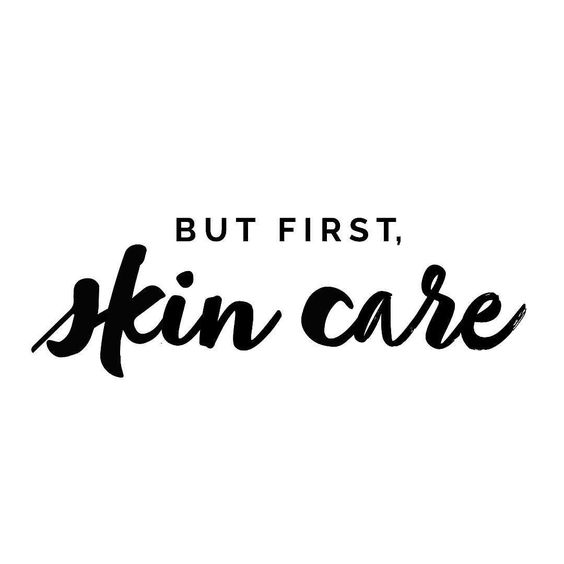
This is my first post on the beauty topic and I’m so excited to get started! Let’s talk skincare 101. Everyone wants their perfect personalized skincare regimen, but we live in a over-saturated world of beauty with new products constantly being introduced every single day. It can feel overwhelming trying to find your own skincare routine, but these simple steps are for EVERYONE no matter your skin type.
CLEANSE:
Cleansing the skin is single handedly the easiest and most important thing you can do to achieve healthy skin. Some people don’t think they need to fully wash their face in the morning since all they did was sleep. MYTH. Your skin and your body are doing so much work while you sleep! You want to remove all that sweat, oil, and buildup as well as any product from the night before. You should cleanse your skin twice a day, the second time being at night. However, if you’re working out you want to wash your face before and after (don’t workout with makeup on!). In this case, when you’re cleansing more than two times a day, you want to be sure you’re using a really gentle cleanser. Over cleansing can strip your skin and lead to dehydration, dryness, acne and more.
A quick double cleanse at night is best. One pump of cleanser to wash off the day. Rinse. Second pump to actually clean your skin and pores. Right now I’m loving the Deep Renewing Cleanser A Little Touch of Heaven.
TONE:
There are many topics of discussion on toners regarding their purpose and importance. The primary function of a toner is to restore the pH balance of the skin. Most cleansers have alkaline (base) properties for softening the skin to thoroughly cleanse pores. However, healthy skin is naturally acidic. A toner brings your skin back down to the healthy acidic level to prep it for skincare products.
EXFOLIATE:
This is often times a step that goes overlooked and undervalued in many skincare routines.
What is exfoliation? It’s the removal of dead skin cells sitting on the surface of the skin. There are a number of ways you can exfoliate including physcial scrubs, AHA/BHA chemicals, and enzymes. I want to do a separate post dedicated to this topic alone to break down each type of exfoliation, but incorporating one of these forms into your regime is vital whether you’re dry or oily.
Why is exfoliation so important? Each month your skin goes through a cell regeneration process. However, as we age our bodies slow down the natural shedding process. When skin cells start to pile up, it can leave the skin looking dry and lackluster as well as clog up and impact pores creating acne.
Most exfoliators should be limited to once per week. However, gentler enzyme exfoliants naturally derived from fruits can most often be used multiple times per week depending on their strengths. Regular exfoliation is helpful in resurfacing, smoothing skin texture, improving skin tone and enhancing skin’s receptiveness to skincare products.
SERUM:
Serums pack a punch and are so important because they contain high concentration of active ingredients. They are made up of small molecules, allowing them to penetrate and absorb into the skin much deeper than other skincare products. There are so many to choose from, but the most effective are a Vitamin A and a Vitamin C. Serums are meant to treat specific needs such as anti-aging, acne, and sensitive skin types.
HYDRATE + PROTECT:
The words hydrate and moisturize can be traumatizing to an oily person, but it’s so important for every skin type. That’s not to say that everyone should use the same ingredients, but you should definitely be using something suitable for your own skin. When oily skin types are over stripped and under hydrated, the skin produces even more oil to protect itself hence creating a vicious cycle of depleting and over producing oils. Finding the right moisturizer completes the regimen to balance and create healthy skin.
For your day time regime, the final step would be SPF! You want to protect your skin from the sun to treat acne scars and prevent further damage leading to hyper-pigmentation, wrinkles and loss of collagen.

